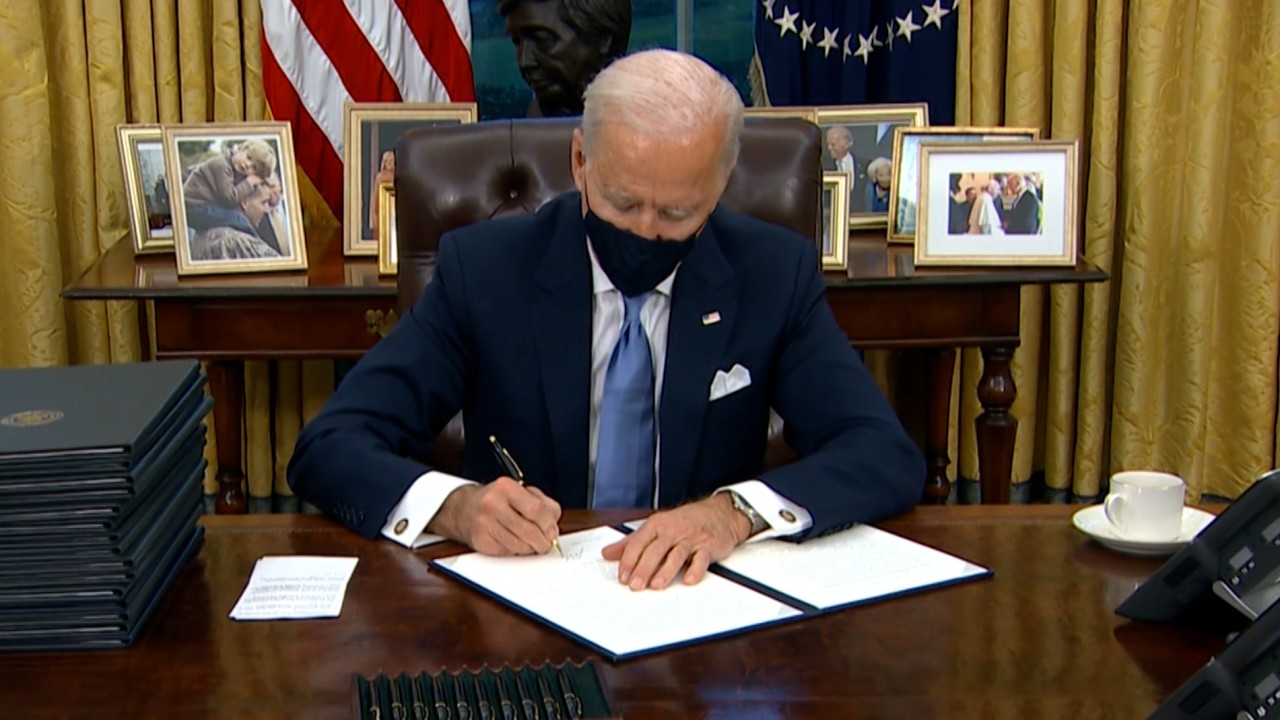
How South Korean collaboration with Biden’s America can create green energy jobs to benefit the planet
- If Biden’s prioritises the 2035 net-zero emissions target, it can be a global game-changer for renewable energy
- Cooperation with South Korea which, like the US, has great wind power potential, should be a priority
If Biden prioritises the 2035 net-zero target for America’s utilities and helps offshore wind power take off, it will be a global game-changer for renewable energy, making the US very fertile ground for more investment and jobs.
President Moon has committed to replacing coal with renewable energy. In the coming decade, solar and wind power will change the world. It will eclipse the mobile phone and internet revolutions, and help provide the greatest concrete solutions to stopping fossil-fuel-driven climate change from destroying our planet.
Europe’s giant utilities seem to be piling in, in anticipation of new deals. Clear political signals matter, so we are watching the US Democratic Party with great interest.

00:49
President Biden signs first-day executive orders for US return to Paris climate accord, WHO and more
Our new projects would transform our economy, so I have proposed a special law to finance this. A unique feature is that South Koreans would be able to invest directly, with the government and affiliated financial institutions covering the associated risks.
Research shows solar and wind infrastructure projects have low risks and high rewards, so why not benefit the public directly? Climate action will only become more popular if Koreans can make money from it, while cutting pollution and electricity bills, and ending our reliance on imports of costly coal and liquefied natural gas.
I believe I received record support, over 84 per cent of the vote, in the 2020 general election because I promote new climate and energy action.
When K-pop group Blackpink called for climate action recently, the internet exploded with support. Our young people understand what is at stake: their survival.
Japan, which has a 2050 plan but lacks details, has a poor track record on building renewables at home, although reform minister Taro Kono seems to be pushing for solar and wind investment. South Korea has also pledged to be carbon neutral by 2050.
Some say financial institutions only have to be led to transition towards green financing, which, if profitable, would naturally raise funds. But green financing in South Korea is still in the initial stage. We need to look outwards and draw lessons. The world is changing. South Korea has to make quick choices to benefit its population and the planet, as does the US. If we cooperate, both countries can gain.
Min Hyung-bae is a lawmaker of the ruling Democratic Party of Korea and belongs to the National Policy Committee at the National Assembly

